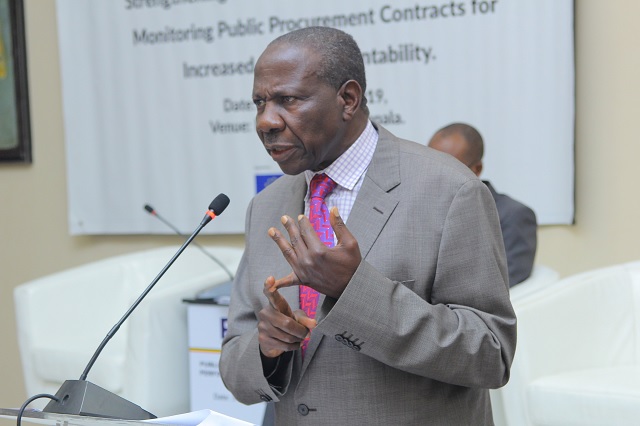
Kampala, Uganda | THE INDEPENDENT | The Finance Minister Matia Kasaija has said that the government does not have a provision for any fiscal stimulus for businesses that have been affected by the impacts of the COVID-19 pandemic.
Several economists and players within the private sector have been calling upon the government to consider giving economic stimulus packages to businesses, most especially Small and Medium Enterprises to save them from winding up. The said package is looked at inform of tax breaks, waivers, and direct recapitalization.
However, Kasaija told Uganda Radio Network that the private businesses should utilise loans in the Uganda Development Bank which the government has recapitalized to support businesses in the post-COVID-19 recovery process. The government recapitalized UDB to the tune of one trillion Ugandan Shillings, with more funding expected to come from the World Bank and International Monetary Fund to increase access to credit among Ugandan entrepreneurs.
Kasaija adds that others might also opt for loans from commercial banks.
He notes that small businesses and individuals can also take advantage of the several government microcredit schemes aimed at fighting poverty in the country with a focus on creating revolving funds for microcredit to households at the grassroots. The minister, however, notes that the big shots should not trespass on this avenue as they have reportedly been doing.
Kasaija shares that although COVID-19 has greatly impacted the country, it is also becoming a turning point and an eye-opener for the economy which is, according to him, going to take a different direction towards production and massive industrialization.
However, he fears that many loans are currently being taken by the government yet they are poorly absorbed which might cause a great increase in the debt burden. Kasaija proposes scaling down expenses so that some finances are diverted to most pressing expenditures at the moment.
The COVID-19 pandemic has already heightened pressure on fiscal space as a result of additional expenditure to address rapid response in the health sector and livelihood support for affected persons.
A recent preliminary assessment of the short-term impact of the pandemic by the finance ministry anticipating the increase in the number of poor people by 2.6 million and a significant deterioration of the current account balance owing to an expected severe reduction in exports, tourism receipts, and workers’ remittances.
*******
URN
 The Independent Uganda: You get the Truth we Pay the Price
The Independent Uganda: You get the Truth we Pay the Price



